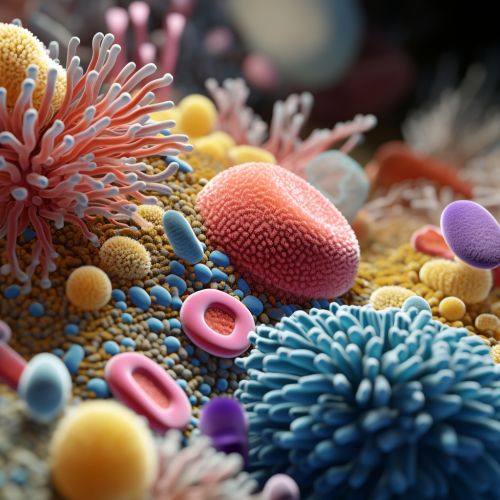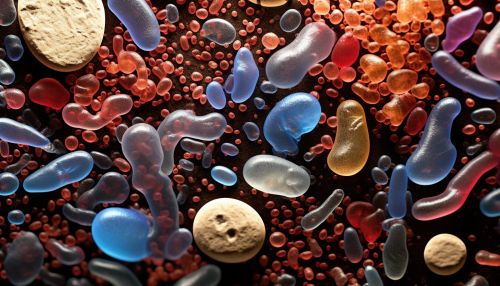Microbiome
Introduction
The Microbiome refers to the collective genomes of the microorganisms that reside in an environmental niche or the microorganisms themselves. The microbiome's microbes interact with their host and with each other in a symbiotic relationship, performing a range of functions that the host would not be able to perform on its own. The microbiome has been found to be crucial for immunologic, hormonal and metabolic homeostasis of their host. The synonymous term microbiota is often used to refer to the microorganisms themselves, whereas microbiome refers more specifically to the collection of genomes of these microorganisms.


Composition of the Microbiome
The microbiome consists of a variety of microorganisms, including bacteria, archaea, viruses, and eukaryotic microbes. These organisms interact with each other and with their host in a complex web of relationships. The composition of the microbiome varies widely from person to person and from one part of the body to another, influenced by factors such as diet, disease state, and environment. The largest numbers of microbes reside in the gut, where they play a crucial role in digestion and nutrient absorption.
Functions of the Microbiome
The microbiome performs a wide range of functions for its host. In humans, these include aiding in digestion, producing vitamins, and protecting against harmful microorganisms. The microbiome also plays a role in the development and function of the immune system. Disruptions to the microbiome, known as dysbiosis, have been linked to a range of health problems, including obesity, inflammatory bowel disease, and mental health disorders.
Study of the Microbiome
The study of the microbiome, known as microbiomics, has been greatly facilitated by advances in genomic sequencing technology. This has allowed researchers to analyze the genetic material of the microbiome and to identify the specific species present. The Human Microbiome Project is a major initiative that aims to characterize the human microbiome and understand its role in health and disease.
Microbiome and Disease
There is growing evidence that the microbiome plays a significant role in various human diseases. Dysbiosis of the microbiome has been implicated in conditions such as inflammatory bowel disease, obesity, and even mental health disorders. There is also evidence that the microbiome can influence the effectiveness of certain drugs, a field known as pharmacomicrobiomics.
Future Directions
The study of the microbiome is a rapidly evolving field, with new discoveries being made on a regular basis. Future research is likely to further elucidate the complex interactions between the microbiome and its host, and to identify new ways in which the microbiome can be manipulated to improve health and treat disease.
